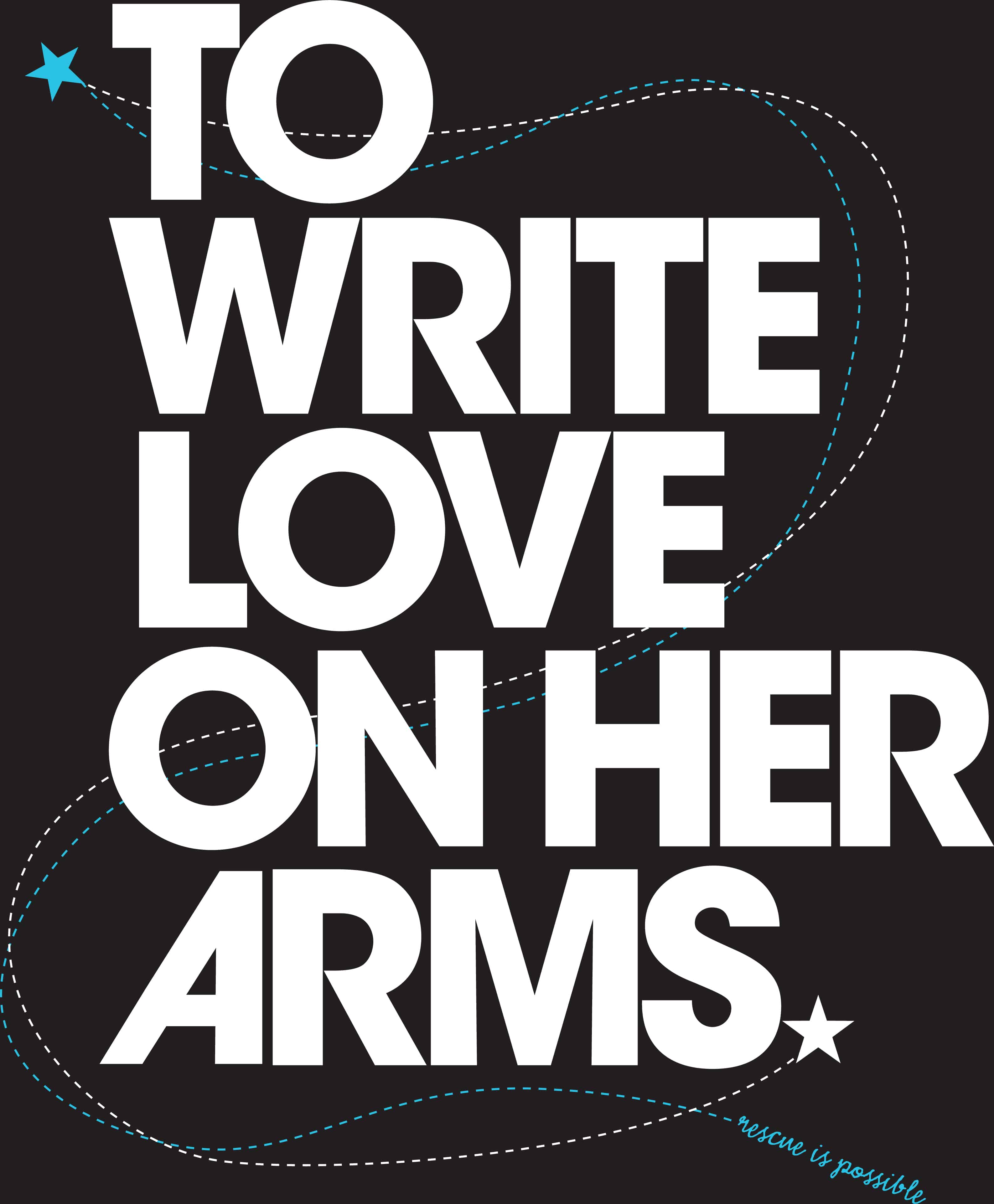Renee carved “FUCK UP” into her arm with a razor blade. All Jamie wanted to do was write “LOVE” on her arms instead.
To Write Love on Her Arms (TWLOHA), a non-profit organization founded in 2006, started with that story. In fact, To Write Love On her Arms was the name of that story, written by founder Jamie Tworkowski. It tells the tale of Renee’s first five days of sobriety.
Located in Melbourne, Florida, TWLOHA aims to present hope—and find help—for those who struggle with depression, self-injury, addiction, and suicide. The organization has donated over $1,000,000 directly into treatment and recovery. We talked to Chad Moses, on the organization’s music/events team, to understand a bit more about what they do and how we can help.
SDTC: Tell us a bit about TWLOHA.
CM: TWLOHA exists to encourage, inspire, inform, and also to invest directly into treatment and recovery. We began as an attempt to help a friend and tell her story of recovery. The idea was as simple as attempting to make one person’s struggles into a community effort. Through the telling of this story, we found that we stumbled on a much bigger conversation of pain and hope.
SDTC: What are the biggest obstacles we face today when it comes to helping and supporting those with some kind of mental illness or addiction?
CM: The issues at hand are people issues. That means treating these issues is a matter of caring for the individuals who are struggling. One way we frame the conversation is by expanding the perspective. So often these issues go unmentioned or completely misunderstood; our fight is really against the thing that allows depression to grow unchecked and tells us that our addictions make us hopeless. We identify that silence as isolation. Isolation offers us the lies that we are alone in our struggle. If isolation is the struggle, then community is the solution. So I would say that the biggest obstacles are rooted in the overall lack of conversation around the issues.
SDTC: How does TWLOHA work to help?
CM: We hope to be a bridge to avenues for help. We try to do that from as many angles as possible. In any of our programs, we have the goal of showing up where people naturally come together, such as at music festivals. Music festivals represent a huge opportunity to interact with people on the common ground of loving music—and at such festivals, you find a natural sort of community. At these festivals, we bring resource guides that highlight mental health networks in the surrounding cities. The idea is that most people don’t ask for help because they are unaware what help exists. As I write this, there are 88 college students meeting in Cocoa, Florida for a training conference on how to join the ranks of 85 universities nation-wide in forming an official TWLOHA UChapter. Additionally, we enlist the help of about 100 high school campuses each semester to serve as fundraising and advocacy groups. At the heart of each of our programs is the desire to encourage, inspire, inform, and invest into treatment and recovery.
SDTC: What are some ways we can each raise awareness about and combat mental illness?
CM: In many ways it boils down to a matter of perspective. These are people that we know and love and may even be ourselves. So often as a society we are careless with our words and descriptors, and we settle for quick answers to tough questions. When we talk about depression and addiction and thoughts of suicide, we are talking about deeply rooted and multi-faceted issues. Relationships and community will be at the heart of recovery. As community members, we encourage people to learn about what mental health resources are available in case the phone rings at 2am.
SDTC: Why do you think there is still such a stigma around mental health?
CM: There is a big difference between talking about these issues and talking about them appropriately. Stigma exists in part because these issues suggest that we shouldn’t talk about them. Often times because of the sensitive nature, they find their way into punchlines. This all goes back to underlying point that we are discussing actual people and real lives. If we can find responsible and safe forums to discuss these issues, then we will start to see the stigma get weaker.
Want to get involved? Find more information here.



 Follow Us On Instagram
Follow Us On Instagram
